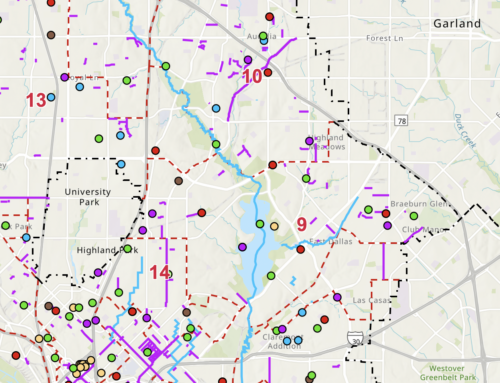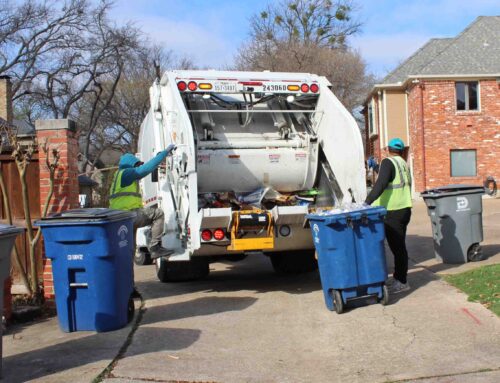It’s not news to anybody that North Texas has experienced phenomenal growth in the last 30 years. The population of Dallas is about twice what it was when I was a child, and the other area cities have grown even more dramatically.
We now have about four and one half million people living in the Dallas/Fort Worth metropolitan area, and that number grows every day.
However, many of us seem to have less familiarity than ever with neighborhoods across town or in nearby cities. I often hear or read about people who live in a suburb like Plano and who never venture south of LBJ.
It’s mind-boggling to think that someone could live in a suburb of Dallas and never take advantage of the restaurants, entertainment, arts, sports and other activities the city has to offer. That strikes me as an awfully unadventurous and narrow view of the outside world, seeing it as something strange and threatening rather than as exciting and broadening.
Of course, I don’t often go north of LBJ or to the suburbs myself unless it’s work-related, so maybe I too could stand a little broadening.
The point of all this isn’t to pick on the suburbs, however. I live where I live in East Dallas because I feel that it has more variety, more character and more interesting things to see and do. We’re all free, though, to live wherever we want to, for whatever reasons are important to us.
My point is that we need to start thinking on a bigger scale when we consider the issues facing our region. All too often, different cities in the region, and many of their citizens, seem to see themselves more like petty fiefdoms in medieval Europe than like neighbors facing a common set of very complex problems. The suburbs couldn’t draw in businesses and residents without being close to the attractions of Dallas, and Dallas couldn’t grow and prosper without the markets and the workforce of the suburbs.
Some large metropolitan areas in other parts of the country have adopted a more regional form of local government by, for example, merging city and county functions into one entity. We’ve done a little bit along those lines, especially with DFW Airport and DART, but there’s a lot more we could do that would make a lot of sense. For example, our air quality and our road network are closely-related and region-wide problems. While there are quasi-public regional groups that are working on these issues, it seems to me that we need a more aggressive approach with more political clout, which a regional authority could offer.
Other things that could benefit from a stronger regional approach would include support for our cultural facilities and organizations, sports facilities (especially if we pursue the 2012 Olympics), higher education institutions and our public hospitals and public health system. In each of these cases, high quality Dallas facilities, largely subsidized by Dallas taxpayers, benefit people across the entire area.
Of course, there are two very big stumbling blocks to increased regional cooperation. The first is that in some cases state law might have to be changed to permit it, but if area cities supported such an effort it would probably happen.
The second and much more difficult obstacle is that of convincing voters, taxpayers and politicians used to controlling and dealing with their own municipal governments to cede some political power and taxing authority to larger entities over which they would have much less control.
Daunting though this may appear, the alternative is to continue to try to move an urbanized region of almost five million people into the 21stcentury with a system of local government designed in the 19thcentury.




